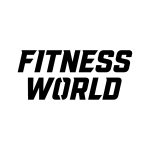The Importance of Rest Days in Your Fitness Routine
Rest is just as crucial as exercise when it comes to fitness. According to a blog, if you've been training hard and are feeling exhausted, giving your body time to recover can support muscle repair, boost performance, and enhance your overall well-being.
At Victoria Fitness World, you'll have access to advanced recovery tools like Human Touch massage chairs, Normatec compression boots, and Hydromassage to speed up recovery and help you feel your best. Get a FREE 3-day gym pass and experience this local gym in Victoria, BC today!
Why Rest Days Are Key to Reaching Your Fitness Goals
You might be wondering, "I’m working hard—why should I take a rest day?" The truth is, rest is a crucial element for optimizing your fitness routine. Here’s why:
Muscle Repair and Growth
Exercise puts stress on your muscles, causing tiny tears in muscle fibers. Rest is the time when your muscles rebuild and grow stronger. Without proper recovery, your body won't have the opportunity to repair, which can lead to fatigue, performance plateaus, or even injury.
Boosts Performance and Prevents Injury
Taking a rest day allows your body to recharge, leading to better performance. You’ll feel more energized, stronger, and ready to give your next workout your best effort. Rest also helps prevent injuries by reducing the chances of overuse and strain.
Mental and Emotional Benefits
Fitness is not just about physical exertion—it’s also a mental game. Constantly pushing yourself can lead to burnout and fatigue. Taking breaks allows your mind to reset, reduces stress, and improves your mood, ensuring that when you return to the gym, you’re both mentally and physically rejuvenated.
How to Recognize When It’s Time for a Rest Day
Wondering if it’s time to take a break? Here are some signs your body might be asking for rest:
Overtraining
- Fatigue: If you’re still feeling drained after a full night’s sleep, it could be a sign your body needs rest.
- Soreness: Persistent muscle soreness or stiffness lasting several days may indicate overtraining.
- Irritability: Overtraining can elevate stress levels, leaving you feeling more emotional or easily frustrated.
Listening to Your Body’s Cues
Your body sends signals when it needs recovery. Paying attention to these cues and allowing yourself time to rest is essential for long-term progress.
Scheduling Rest Days
Instead of waiting until exhaustion hits, plan regular rest days to maintain your energy, prevent burnout, and keep up your performance.
Active vs. Passive Recovery: Which is Right for You?
Recovery is personal, and both active and passive recovery have their benefits. Here’s how each approach works:
Active Recovery - Light Movement
Active recovery involves low-intensity exercises that keep your muscles engaged, such as:
- Yoga
- Walking
- Stretching
These activities help ease soreness, reduce stiffness, and improve flexibility while allowing your body to recover.
Passive Recovery - Complete Rest
Sometimes, your body needs complete rest. Passive recovery means taking a break from all physical activity to allow full muscle repair—it's a total reset for your body.
Choosing the Best Recovery Method
If you’re feeling wiped out or experiencing deep soreness, passive recovery is ideal. If you have mild soreness but still want to stay active, try active recovery to keep your body flexible and rejuvenated.
Maximizing Your Rest Days for Optimal Recovery
Rest days are not just a break from exercise—they’re a vital part of your recovery journey. Here’s how to make them count:
Focus on Quality Sleep
Sleep is when your body does most of its repair work. Aim for 7–9 hours of restful sleep to enhance muscle recovery and recharge your energy levels.
Fuel with the Right Nutrition
Proper nutrition supports your recovery. Protein helps repair muscles, complex carbs restore energy, and healthy fats, along with plenty of fruits and veggies, keep you feeling strong.
Manage Stress Effectively
Rest days offer a great opportunity to reset mentally. Incorporate stress-reducing activities like meditation, deep breathing, or relaxation techniques to help promote recovery.
Stay Hydrated
Hydration is key to muscle function and recovery. Drinking enough water throughout the day helps flush out toxins and aids in the recovery process.
FAQs
How often should I take a rest day?
The number of rest days depends on your activity level and fitness goals, but it's generally recommended to take at least one rest day per week to allow your body to recover.
Can I still be active on my rest day?
Yes! Engaging in low-impact activities like yoga, walking, or gentle stretching can aid recovery without putting too much strain on your muscles.
What happens if I skip rest days?
Skipping rest days can lead to overtraining, fatigue, prolonged muscle soreness, and an increased risk of injury, which can hinder your progress in the long run.
How do rest days impact muscle growth?
Rest is when muscles repair and grow stronger. Without proper recovery, muscle growth can be delayed, affecting overall progress in your fitness journey.
Recharge and Rebuild at Victoria Fitness World
Rest days are essential for optimizing performance and avoiding burnout. Taking the time to recover helps prevent injuries, boosts endurance, and enhances both physical and mental well-being. When fatigue hits, give yourself the chance to recharge, reset, and return stronger than ever.
Victoria Fitness World, located in Uptown Shopping Centre near the Whole Foods Market, is where effective training meets premium recovery. This top-tier Victoria gym features modern cardio machines, dedicated strength areas, unlimited group classes, and expert trainers who are here to help you hit your goals. After your workout, unwind with HydroMassage, Human Touch massage chairs, or Normatec compression boots to give your body the care it deserves. With a supportive community and 3-hour free underground parking, this gym is built for convenience and results. Claim your FREE 3-day pass and discover why Victoria Fitness World is a local favourite in Victoria, BC!





